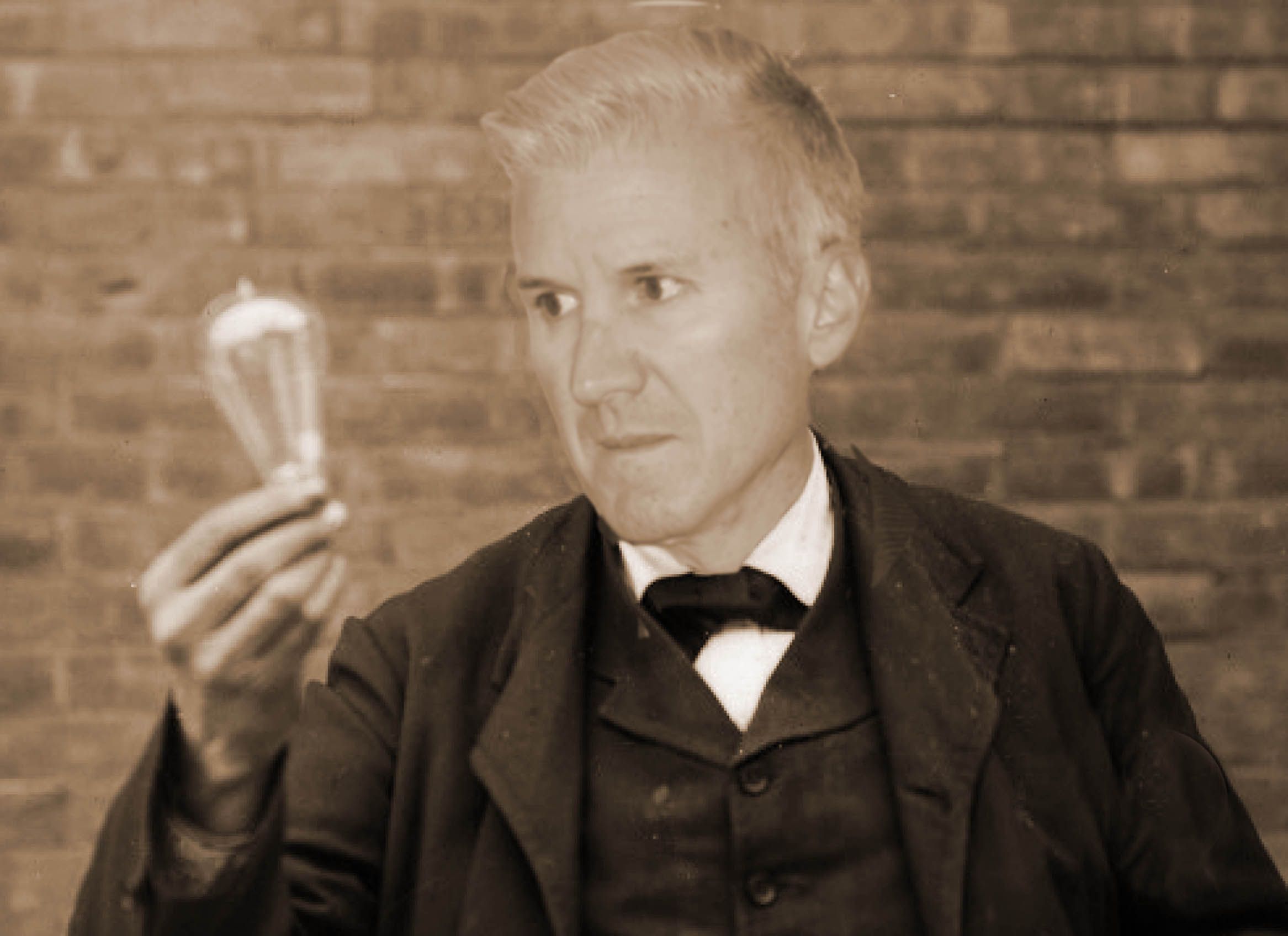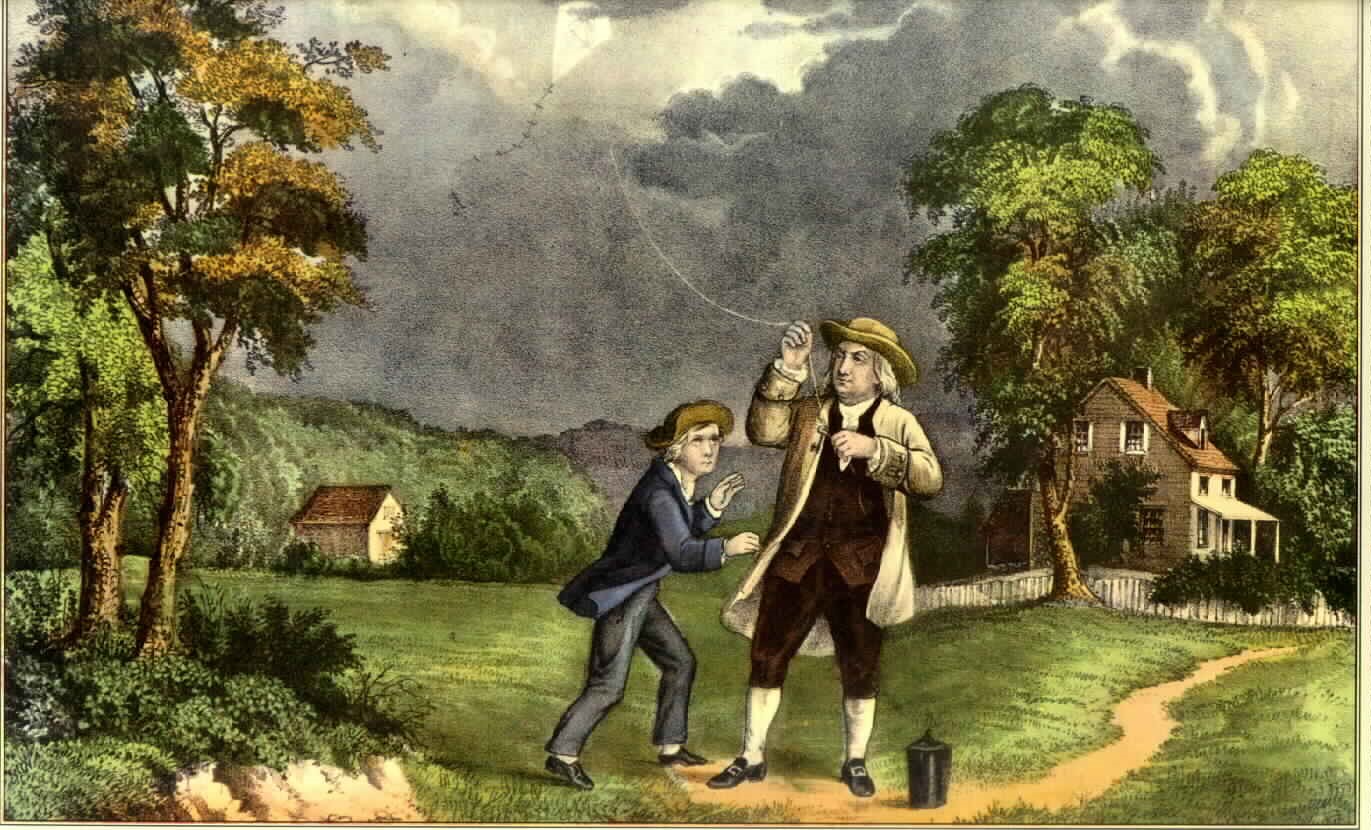How Lessons Learned From Old Technologies Can Be Applied To Our Personal Development
This series of articles aims to raise our awareness of how mastering certain skills of personal development could have as important an impact on our lives as the technologies we daily take for granted. It will also show that not mastering these skills is like living in the darkness that preceded the advent of these technologies.
ARTICLE #3 – ELECTRICITY
In this third article, I will show that leadership is like electricity. When there is no electricity, not much works. The same applies when there is no leadership: not much works in your personal and professional life.
One of the most obvious signs of the lack of leadership was highlighted in a recent Gallup survey which showed that 71 percent of workers are “not engaged” or “actively disengaged” from their job. Think about this for a moment: more than 2 out of 3 respondents hate or don’t really like what they do with the majority of their time. In this case, how can their life be successful?
I believe this problem exists due to 2 reasons:
- The lack of leadership in their personal life
- The lack of leadership of their leaders at work
Leadership can help you find more meaning, more direction, and have worthy objectives that will make a difference in your own life and the lives of others.
After reading this article, you will conclude that living without using leadership is like living in the inefficient world that preceded the invention of electricity.
A little bit of history
In 1740, electricity was a novel and fashionable subject. Most people thought that electricity was as mysterious as heaven. When Benjamin Franklin gave the idea of lightning being a source of electricity, people were excited, and he was supported all around the world.
Benjamin Franklin’s kite experiment in 1752
Electric power arrived a little less than a century and a half ago, but it has radically transformed our way of life.
The first large metropolis that was electrified was Rome in 1886. The AC power system was developed and adopted rapidly after 1886 due to its ability to distribute electricity efficiently over long distances.
Over the course of the next half century, two especially significant social effects became clear. We gained control over light in homes and offices, independent of the time of day. And the electric light brought networks of wires into homes and offices, making it relatively easy to add appliances and other machines.
Science has made great strides in the 20th century and needless to say it is greatly due to electricity. Transport, communication, medical science, and so many other branches of inventions and discoveries are made possible due to the availability of electric power.
Electricity for lights, elevators, and pumps allowed architects to design “skyscrapers” of unprecedented height.
Many social critics of the day saw electricity as an end to the simpler, less hectic way of life. Perhaps they were right, but the new electric age could not be dimmed.
All these inventions of scientists and the benefits they have brought to mankind cannot be denied. They have improved lives and have given people a life of comfort. To a large extent, electricity defines modern technological civilization.
Nicola Tesla was a great contributor to the development of AC Power
What is the link with your own evolution?
I propose that the lessons learned from electricity can be applied to “power” our own lives. Leadership can generate the same impact in our personal lives as electricity did in society. Leadership is like electricity in the sense that it is the power behind all the skills of personal development. If you don’t understand and use leadership, you cannot activate everything efficiently. I would go as far as saying that it is the mother of all personal development skills.
But what is leadership?
This topic is very wide and there are many definitions in the personal as well as in the organisational context.
Here are a few of my favorite definitions:
According to John C. Maxwell, Leadership is simply influence, and the toughest leadership challenge is leading oneself.
According to Stephen Covey, personal leadership is the ongoing process of keeping your vision and values before you and aligning your life to be congruent with those most important things (The 7 Habits of Highly Effective People. S. Covey).
Exercising leadership is a way of giving meaning to your life by contributing to the lives of others. At its best, leadership is a labor of love. (Leadership On the Line: Staying Alive Through the Dangers of Leading. Ronald Heifetz; Marty Linsky.)
Values, vision, mission and awareness (see article #2) are among the most important components of leadership. When you clearly know your values and how to honour them, when you develop your vision for your life and discover your mission (the cause you want to dedicate yourself to), you feel a tremendous amount of energy that pulls you in the direction of your ultimate potential. This energy can be compared to electricity.
How can we use the lessons learned from electricity in our own lives
Since I have discovered my mission in life (my cause) I have had tremendous energy that has supported my work and my passion since then. This energy is just like electricity, when you have learned to harness it and distribute it well, it enables you to make great strides in your own development as science and the world did with electricity.
- To a large extent, your leadership will define who you will become, just as electricity defined modern technological civilization.
- The AC power system was developed and adopted rapidly after 1886 due to its ability to distribute electricity efficiently over long distances. You will also develop very rapidly once you are endowed by the energy that leadership will bring to your life.
- Electricity for lights, elevators, and pumps allowed architects to design “skyscrapers” of unprecedented height. Your life and career will also reach new heights when you use leadership in your life.
- Many aspects of our modern lives were made possible due to the availability of electric power, and it is the same with leadership. Your leadership will make many new things possible in your life.
LEADERSHIP is like ELECTRICITY – it is the energy that enables all the personal development skills to work
Now that you know that LEADERSHIP can act like ELECTRICITY, would you live without it?
You might not understand what leadership can bring at this point in your life, but think of it as if it were electricity and know that it will power everything that will make your life better. Leadership will help you define your goals, improve your communication, improve the management of your emotions, improve your relationships, your decision-making and many other aspects of your life.
Be there for the next article of this series, in which I will talk about the impact of the phonograph in society and how we can use the lessons learned from this technology in our personal development.



En relación a su artículo #3 electricidad y su relación con el liderazgo personal, le comento que ciertamente ayuda a entender la manera que cada ser humano conduce su vida personal, o laboral, independientemente de las definiciones y los tipos de liderazgo existentes, yo como un aprendiz, la describiría de otra manera enfocándome al núcleo atómico para comprender el fenómeno de liderazgo como la “energía positiva (protones) y negativa (electrones)” del núcleo atómico de los elementos (ser humano como ejemplo), o sea cuando pensamos y actuamos positivamente atraemos energía positiva del universo y nuestro núcleo (ser) se carga positivamente y eso nos permite hacer cosas buenas (ayudamos, damos lo mejor de nosotros mismos, etc.), cuando pensamos y actuamos negativamente atraemos energías negativas del universo a nuestro núcleo (ser) que se traduce en acciones negativas hacia nuestros semejantes, o adquirimos enfermedades por el enojo o por lo que comemos como ejemplos. Creo que estamos en sintonía armónica mi amigo Pierre Dussault, en ese sentido yo definiría al liderazgo como: “en función de nuestros propios valores humanos, de nuestra conciencia de amor, sabiduría, y sensibilidad, debe haber congruencia entre lo que pensamos, vemos, decimos, y actuamos en nuestra vida, incidiendo en la vida de otros ante el desafío de una situación difícil cumpliendo con nuestro destino o misión en la vida”. Ing. Serapio Carmelindo Ramírez Santiago, 09/Feb/2016, 2:42 p.m.
wowe Serapio! A mi me gusta mucho su metafora del nucleo atomico! es una otra manera de ver el liderazgo.